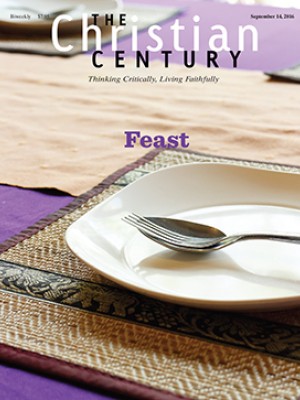Election issues, candidate endorsements heard from pulpits, new survey says
Most Americans are hearing campaign issues from the pulpits of their churches during this presidential election season—and some are hearing candidate endorsements as well—according to a new survey.
The survey was conducted online and by mail June 7–July 5 among a nationally representative sample of 4,602 adults, according to Pew Research Center. Of those surveyed, 40 percent reported attending religious services at least once or twice in the months before receiving the poll.
Nearly two-thirds of respondents (64 percent) in the survey say their clergy have spoken in the spring and early summer about at least one of the following issues: abortion, economic inequality, environmental protections, immigration, religious liberty, and same-sex relationships.
Read our latest issue or browse back issues.
And 14 percent said their pastors have spoken about a specific presidential candidate, even though churches can be stripped of tax-exempt status for endorsing or opposing a candidate under the Johnson Amendment, which both Donald Trump and the Republican Party have said they want to repeal.
A few recent churchgoers heard pastors endorse (9 percent) or oppose (11 percent) a presidential candidate from the pulpit, according to Pew. More churchgoers have heard their pastors speak against Donald Trump (7 percent compared to 4 percent against Hillary Clinton) than for his Democratic opponent (6 percent for Clinton, compared to 1 percent for Trump).
Black Protestant Christians were most likely to hear about the candidates at church: 28 percent had heard messages supporting Clinton (compared to 2 percent supporting Trump) and 20 percent heard messages opposing Trump (compared to 7 percent opposing Clinton).
At the same time, only 7 percent of respondents said their clergy often talk about politics, while nearly half said they “rarely or never” hear about political issues in religious services.
“Most people surveyed say political speech is the exception, not the rule, in their churches, synagogues, mosques, or other houses of worship,” researchers wrote in the survey report.
The most frequently addressed topics were religious liberty and same-sex relationships, with about 40 percent of respondents saying they’d heard about either one of those two topics. That was followed by abortion (29 percent), immigration (27 percent), environmental protection (22 percent), and economic inequality (18 percent).
Messages on religious liberty and abortion echoed positions traditionally associated with political and religious conservatives: 32 percent said they had heard from their clergy that religious liberty is under attack, and 22 percent had heard messages against abortion. Only 3 percent heard clergy primarily advocating for abortion rights, according to Pew. Messages on immigration and the environment seemed more aligned with political and religious progressives: 19 percent heard comments welcoming immigrants, and 16 percent on the need to protect the environment.
Pulpit talk was more mixed on sexuality: 20 percent had heard critical views of same-sex relationships, while 12 percent heard messages encouraging acceptance of LGBT people. Another 7 percent of churchgoers said they had heard both sides from pulpits.
Additionally, four in ten of the respondents who had attended religious services heard encouragement from their congregations to vote in the election in November, while slightly fewer had been encourage to participate in the primaries. Among black Protestants, 60 percent heard from clergy about the need to vote in the general election. —Religion News Service; added source
This article was edited on August 30, 2016.






